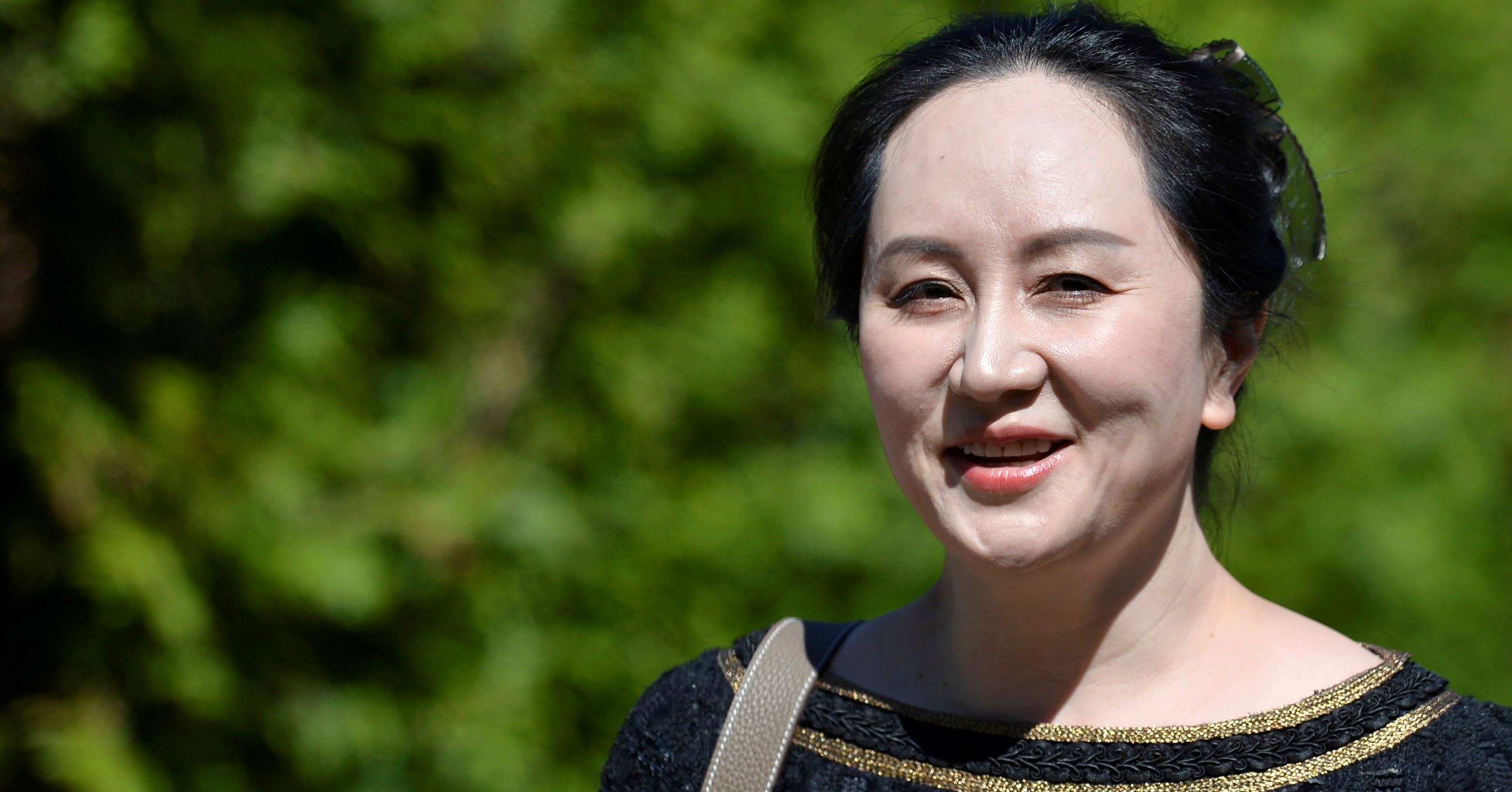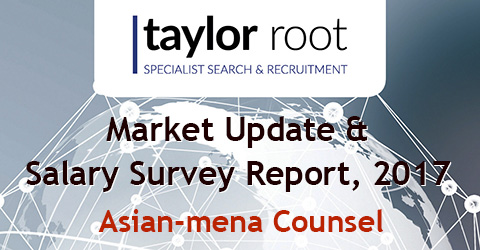
Image courtesy https://www.cnbc.com/
Ms Wanzhou Meng, the CFO of China’s telecom giant Huawei, has been fighting in Canadian courts against her extradition to the US since the end of 2018. Her legal team presented a fourth set of legal arguments in late March and early April to the Canadian Supreme Court. The lawyers sought to argue that the US cannot prosecute Ms Meng in this case as the US courts have no jurisdiction in the circumstances. US prosecution, they say, would violate the requirement of customary intentional law on jurisdiction in criminal cases. The final decision in the extradition case was recently delayed when the Canadian court allowed Ms Meng’s lawyers to review new documents after HSBC and Huawei settled in Hong Kong. The final decision should be handed down this summer.
Ms Meng was arrested in December 2018 at Vancouver International Airport where she was transiting on her way to Mexico. The arrest was in response to the US extradition request: Ms Meng faces charges of bank fraud for misleading HSBC about Huawei’s business dealings in Iran – an act which would have put the bank in breach of the US sanctions against Iran. Ms Meng has been held under house arrest in Canada since then, maintaining her innocence and fighting for her release.
Ms Meng’s lawyers have previously argued that the fraud allegations are unsubstantiated and false, and that Ms Meng is a victim of abuse of due process. The lawyers argued that there were irregularities in Ms Meng’s arrest and they sought to show that the restrictions on Huawei and Ms Meng’s arrest need to be understood in their political context of the US-China trade war (Huawei was listed as a national security threat by the US Federal Communications Commission). As a result, they argued, the extradition request should be denied and Ms Meng should be released. The Canadian Supreme Court heard the arguments and admitted that some of the submitted evidence is “realistically capable of challenging the reliability of the record of the case on issues relevant in the hearing.” The judge also suggested that the arguments relating to the abuse of process will likely shape the final decision of the court.
A further set of hearings were held in late March and early April 2021. Ms Meng’s lawyers presented a new line of attack on the extradition hearing. They alleged another breach of international law, claiming that the US lacked jurisdiction in the case and so the extradition request should be denied. The Canadian prosecutor rejected the argument, stating that the question of jurisdiction should be decided by Canada’s minister of justice and the relevant US court rather than the extradition judge in Canada, and that the US did in fact have jurisdiction in the case. Ms Meng’s lawyers oppose this argument by saying that the Canadian extradition judge does have the power – and a duty – to determine the issue of jurisdiction in order to protect the judicial process from abuse. They submit that such determination is permitted due to a gap in previously decided cases and thanks to the fact that, in this instance, the abuse of process is governed by common law rather than the Extradition Act.
To be able to hear and decide a case – criminal or civil – the court needs to have official power to make legally binding decisions in the given context. Such power is called jurisdiction. In national law, for example, an issue that took place and relates to people in New York will not be heard in Los Angeles. Similarly, in international law, the parties must first establish that the court which is to decide their case has the necessary power – jurisdiction – to do so. Ms Meng’s lawyers’ new argument rests on this ground: they say that the US has no jurisdiction to regulate the conduct between a Chinese citizen (Ms Meng) and a non-US bank (HSBC) in a non-US city (Hong Kong) dealing with financial issues that do not directly relate to the US. The alleged fraud took place between Ms Meng and HSBC in Hong Kong in 2013. Given the location, the nationality of the parties and other circumstances, Ms Meng’s lawyers say, the US would be engaging in jurisdictional overreach. Gib van Ert, the lead lawyer in Ms Meng’s team, argued that “Jurisdiction is about where states get to exercise their power… the United States is saying, ‘We get to exercise it in Hong Kong, at least in circumstances where financial transactions… took place in some way that’s connected to the United States.’” He argues that, if allowed, this would represent a significant shift in how jurisdiction is understood and decided in international law, and warns that allowing this to take place would amount to a “plain power grab.”
An important aspect of nationality-based jurisdiction is the commonly accepted rule that a state may exercise jurisdiction over acts of its nationals (while in their territory or elsewhere). At the same time, a state has a power – jurisdiction – to affect and decide legal questions in relation to people, property and other issues within its territory. Mr van Ert reinforced and built on these two principles when he said that “Each state’s exercising of its sovereignty within its territory is dependent on its right to be free of intrusion by other states in its affairs… This principle of non-interference is inseparable to the principle of sovereignty…” Applying this logic to the case of Ms Meng’s extradition, he concluded that “If the law of the United States apply to a Chinese national in Hong Kong, that is an interference with the sovereignty of Hong Kong and China – unless international law permits it” (which it does not). Interestingly, this new argument is not attacking the substance of the extradition request but rather the procedural aspect of it. Mr van Ert, an international law expert, pointed this out when he said that “It’s the actions around the request that are unlawful… If the court condones it, it puts Canada at breach of international law.” This is a novel argument and there is no precedent to support such a claim. This puts the Canadian court in a difficult position as it is asked to consider and rule on a novel legal point that will most likely have a significant bearing on the outcome of the case later in the year.
Canadian prosecutor opposes this view on two grounds. Firstly, the prosecution argued that it is not for Canadian courts but rather for Canadian minister of justice (and the US court) to decide whether the US has jurisdiction in this case or not. Secondly, they claimed that customary international law principles do not have a role to play in this case and, in any case, Ms Meng’s assertions in Hong Kong indeed “are about risks primarily in the United States,” and so within US jurisdiction.
The case places Canada in a very difficult position. However, it is hard to see how the prosecution could be right on either of the two grounds. Firstly, their arguments relating to the power of Canada’s court to decide the question of jurisdiction is flawed. As a country governed by the rule of law, Canada needs to isolate and protect its judicial decision-making from the politics of the day. As the question of jurisdiction is a legal question, it can only be properly answered by a judge. It must be right that a judge has the power to control the court’s procedures and that the common law rules preventing abuse of the process must an inherent part of that power. The prosecutor’s argument that jurisdiction is a matter of policy is unpersuasive and against the very purpose behind separation of powers in legal, executive and political branches of the state. When determining the question of jurisdiction, the court will need to consider all of Canada’s legal obligations, namely Canada’s domestic law, its extradition treaty obligations to the US and its international law obligations more broadly.
Moreover, it is easy to see why Ms Meng’s lawyers are also opposing the question of jurisdiction being decided by a US court, since she would first be extradited before such determination would take place.
Secondly, the prosecutor’s arguments relating to the inapplicability of international law in this case and to the question of US jurisdiction are equally problematic. In a 2020 case of Nevsun Resources Ltd. v. Araya, the Canadian Supreme Court held that customary international law is a part of Canada’s common law and that domestic courts must apply it. Moreover, as explained above, jurisdiction can commonly only be established if there is a tangible connection between the circumstances (people, territory, other elements of the case) and the place where the case is to be tried (the US). The argument that jurisdiction can be derived from the mere fact that US dollar clearing was used is unpersuasive and was – rightly – rejected and described as “absurd” by Ms Meng’s lawyers (they produced seven powerful expert reports, and the prosecutor chose not to argue against these reports). Customary international law is governed by the underlying principles of sovereignty, equality and non-interference between states. For one state to be able to interfere and its courts to be able to make legally binding decisions about affairs of another state’s citizens or activities that took place in another state’s territory, customary international law requires real and substantial connection. It is difficult not to agree with Mr van Ert’s assertion that if we were to recognise the US as having jurisdiction in this case we would be endangering the integrity of international law and the extradition process.
The US extradition request and the extradition hearing puts a lot of pressure on Canada’s legal and political system. On the one hand, the US is Canada’s important commercial and political partner whose requests for assistance cannot be summarily dismissed. Moreover, the extradition treaty between the US and Canada requires Canada to consider the extradition request in line with the treaty rules. On the other hand, however, Canada is a country governed by the rule of law. This includes its domestic laws, treaties with other countries (including the treaty with the US), but also international law. As such, Canada has to be careful not to breach its obligations under the international law – including the customary rules on jurisdiction.
Ms Meng’s extradition case was supposed to be concluded in May 2021. However, her lawyers asked for – and were granted – an extension to be able to study and potentially use evidence from a recently settled dispute between Huawei and HSBC in Hong Kong. The next hearing is set to take place in the summer. More evidence and new arguments may come out, but it is very likely that the older arguments relating to abuse of process and the most recent argument of the lack of jurisdiction will have a significant impact on the outcome of the case. Many of the arguments presented by Ms Meng’s lawyer – and the most recent ones in particular – are persuasive. Their reasoning is in line with the rule of law and the determination of jurisdiction falls firmly within the scope of courts, not political actors. It will be interesting to see how the Canadian Supreme Court balances all the competing concerns and rules, and how it interprets and applies the international laws in this case.
————————————————————
 |
Natalie Mrockova
Teaching and research fellow, University of Oxford
Natalie Mrockova used to give a series of lectures and tutorials on Corporate Insolvency Law at the University of Cambridge and tutorials in Land Law, Law of Trusts, Company Law and Contract Law at several colleges at the University of Oxford. She also spent a year teaching at the University of Wuhan in China where she taught Elements of English Property and Contract Law. Her teaching and research are informed by her previous roles as a commercial and legal negotiator and later also as a head of sales in an international manufacturing company.



















